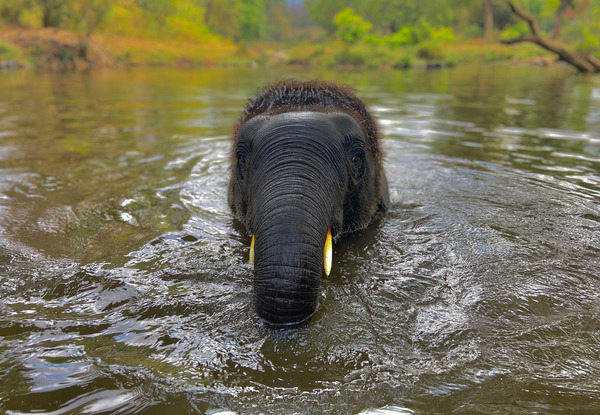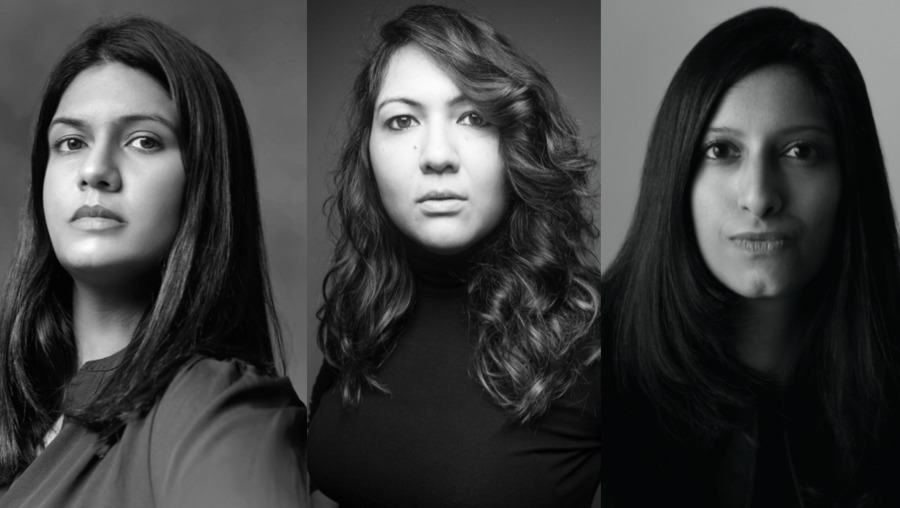(Left to right): Kartiki Gonsalves, Sonam Nair, Vasudha Rungta
For decades, the silver screen has captivated us with the charisma of women in front of the camera. Yet, the true magic often unfolds backstage, where visionary female storytellers have been weaving cinematic wonders. currentMood Mag goes deep into the journeys of three female directors in India, each leaving an indelible mark in distinct cinematic genres – from documentaries to OTT-streamed TV shows and music videos. We introduce to you Kartiki Gonsalves, the director of Oscar-winning documentary “The Elephant Whisperers,” Sonam Nair, writer-director of the Netflix hit series, “Masaba Masaba,” and Vasudha Rungta, producer-director of Raaveena Aurora’s music video, “Mystery.” Join us in celebrating their cinematic prowess as we delve into their experiences and gain invaluable insights for the next generation of visionary female directors in India.

cM: How did your filmmaking journey begin?
KG: My journey into filmmaking began uniquely. I was introduced to nature at just 18 months old during a camping trip in a state park. Growing up in a family with a wildlife and photography background, I developed a deep connection to the natural world. Initially, I worked as a documentary photojournalist before making the transition to become a cinematographer and director. A pivotal moment came during a photo project in Turtuk, a remote village near the Indo-Pakistan border, where I documented women’s lives amidst conflict. This unexplored niche in Indian photography ignited my passion for storytelling, with a focus on shedding light on environmental and humanitarian issues.
cM: What challenges did you face making “The Elephant Whisperers”?
KG: “The Elephant Whisperers” marked my documentary debut. Coming from a photography background, I ventured into various professions – sales at Fab India, working at a gym, graphic design, and creative direction. I began without industry recognition, limited funds, and navigated gatekeepers and funding uncertainties. Creating a good documentary takes years. The truth is you aren’t getting paid, not until anyone buys the film. Artists in our country often struggle to make a living. My mother supported me, and obtaining wildlife permits alone took two years.
Being a woman in the forests, despite my local knowledge, presented challenges. The documentary took six years to make, starting in 2017 when Raghu was just three months old. Filming in the wild led to close encounters with tigers, elephants, and leopards, requiring deep regional and animal behaviour knowledge. Shooting with natural light, despite its challenges, ethically captured raw beauty and emotions.
cM: How have female directors influenced Indian documentary filmmaking?
KG: In the evolving Indian documentary scene, recognition for female directors has been scarce and remains so. Notable talents like Deepa Mehta, Mira Nair, and Rintu Thomas, who directed ‘Writing with Fire,’ have emerged, but there’s still a shortage of female documentary storytellers. These directors infuse their work with unique sensitivity and dedication. They choose stories that often illuminate narratives cantered on women and women-run communities. These narratives might be less accessible to their male counterparts.
cM: How has your documentary work shaped your perspective on life, society, and the human experience?
KG: Through “The Elephant Whisperers,” I aimed to bridge the gap between humans and elephants, highlighting their shared history with indigenous communities. The film shifts from seeing animals as “the other” and instead underscores the dignity of both elephants and these indigenous communities coexisting for centuries. There is so much we can learn from them. They respect the land and take only what’s needed.
cM: Can you share a touching audience response that stands out from your documentary work?
KG: A memorable response came from a mother who shared a video of her autistic son watching “The Elephant Whisperers”. His smile and calm demeanour while watching, as elephants were his favourite animals, deeply touched her. She expressed how the film had become his go-to source of relaxation and thanked me for highlighting that “All communications counts.”
